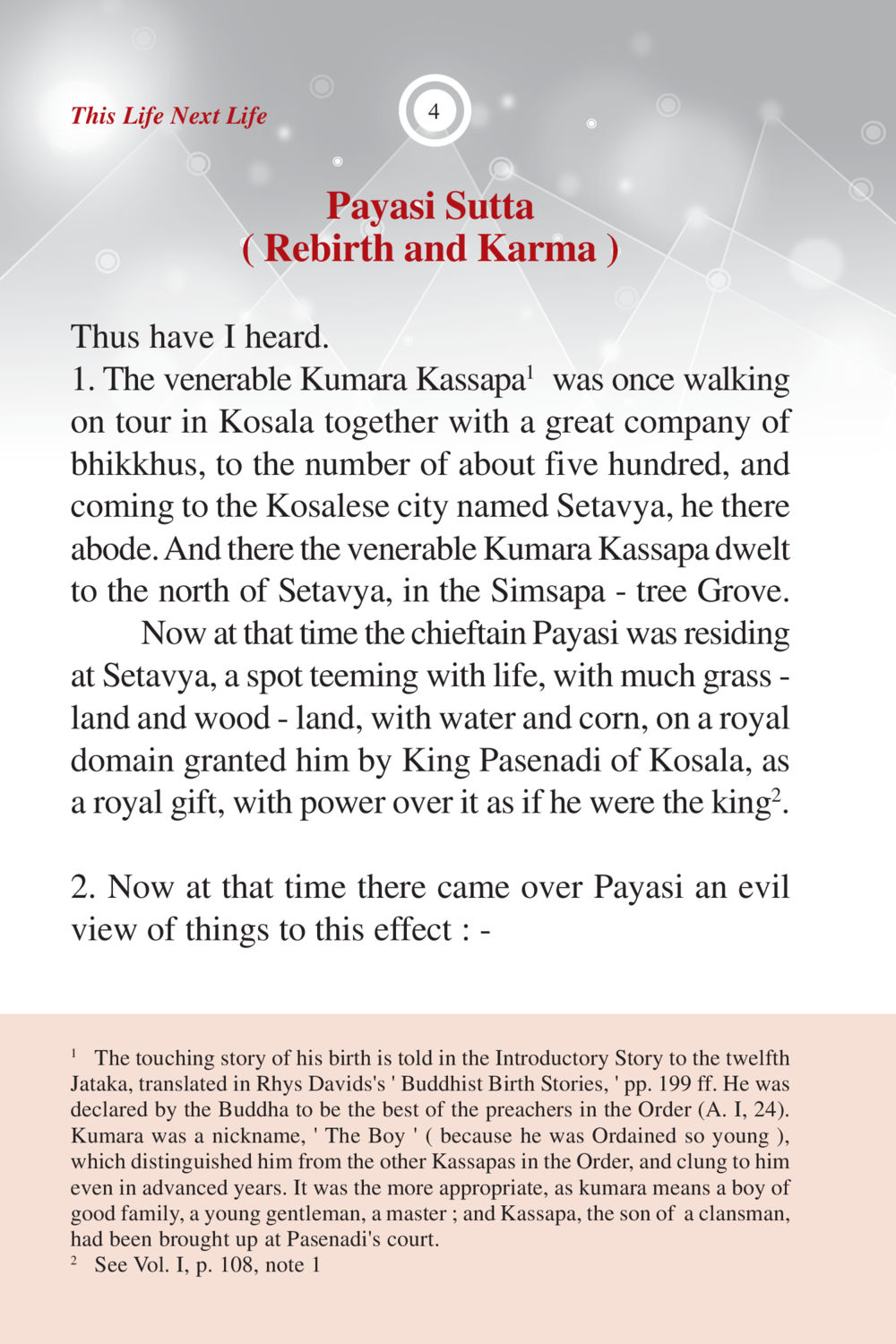Payasi Sutta: Rebirth and Karma : หน้า 6/130
ภพนี้ ภพหน้า ฉบับเติมเต็ม : หน้า 6/130 This text explores the teachings of Kumara Kassapa on rebirth and karma, highlighting the interactions of faith and understanding in life.
0 ครั้ง

สรุปเนื้อหา
The Payasi Sutta recounts the teachings of venerable Kumara Kassapa during his time in Setavya. It narrates the challenges faced by Payasi, a chieftain in this city, as he grapples with misconceptions about rebirth and karma. Through dialogues that emphasize clarity and wisdom, Kumara Kassapa guides Payasi towards understanding the importance of faith in one's actions and their consequences. The teachings provide insights into the nature of life and the cycle of rebirth, encouraging individuals to seek truth through learning and experience. As the Sutta unfolds, it addresses the concerns of material existence juxtaposed with spiritual truth, making it a profound exploration of Buddhist philosophy.
หัวข้อประเด็น
-Buddhist teachings
-Interaction between faith and understanding
-Rebirth in Buddhist philosophy
-The role of karma in daily life
-Character study of Payasi
-Moral and ethical lessons in Buddhism


































































































































